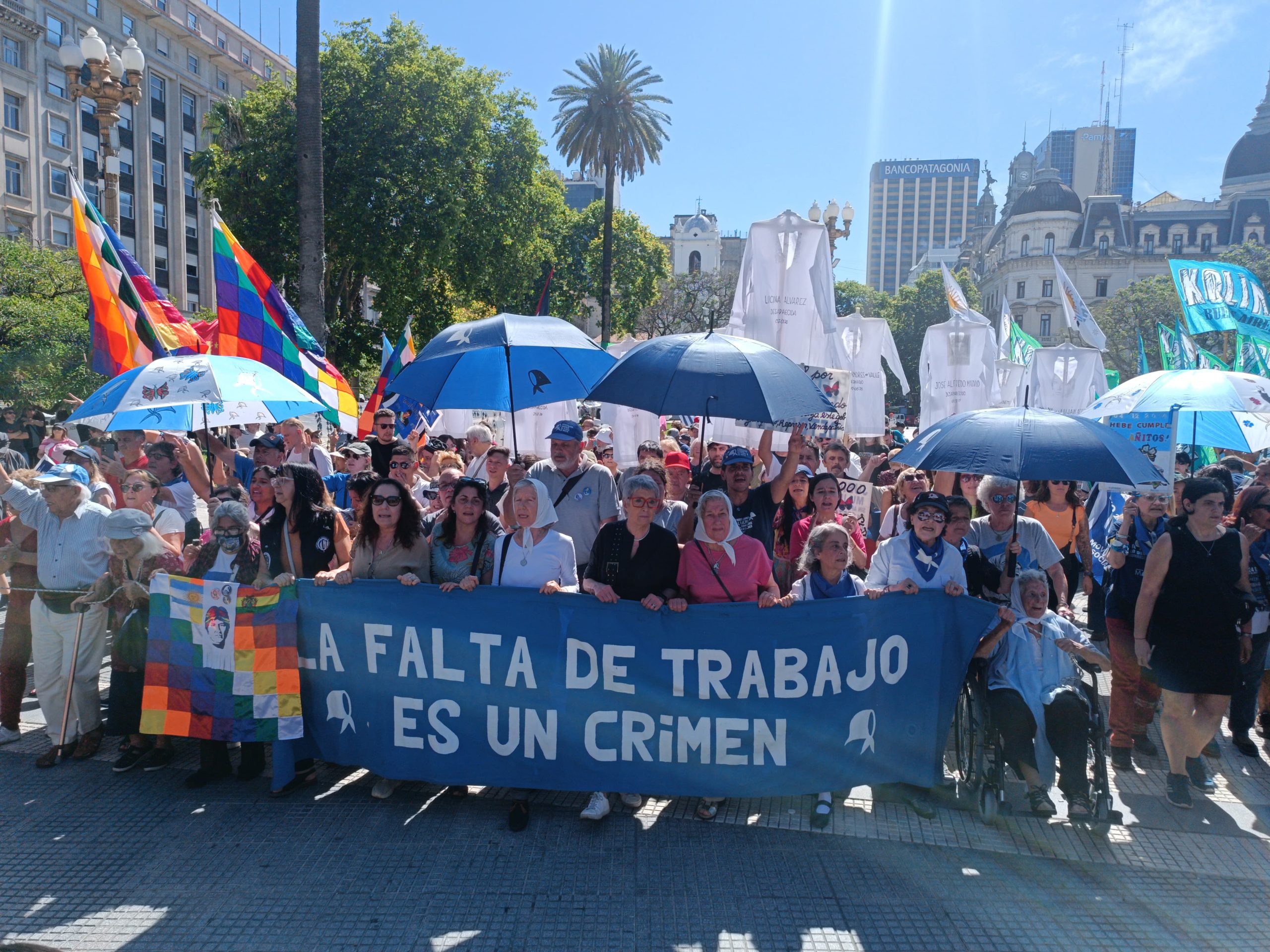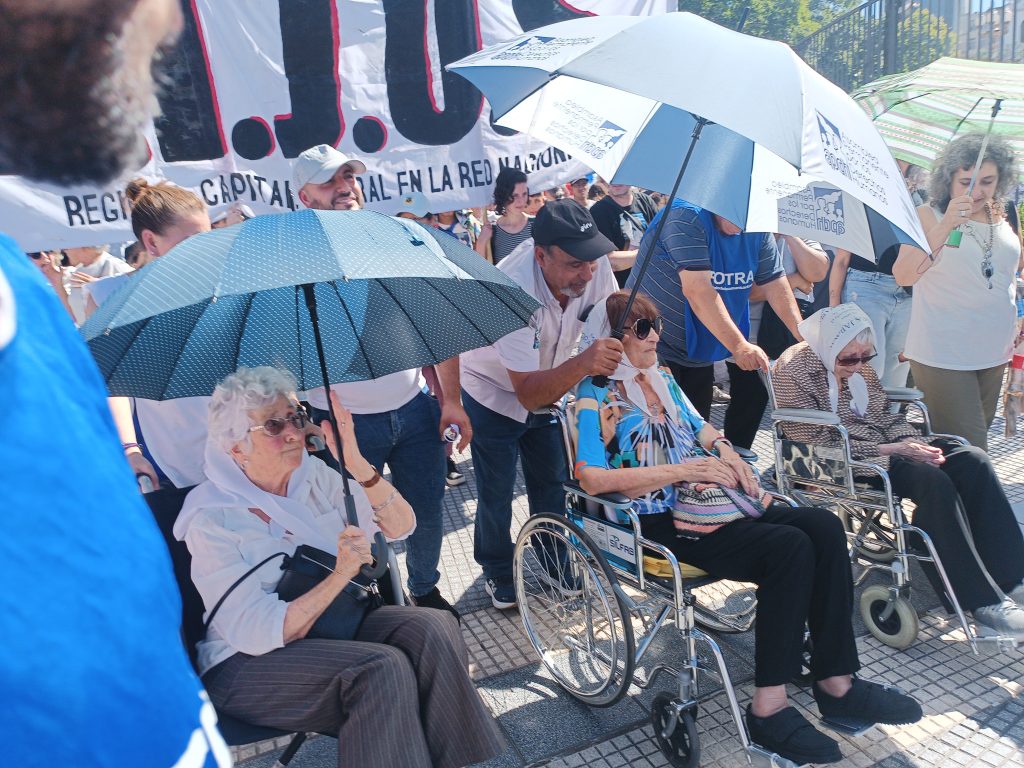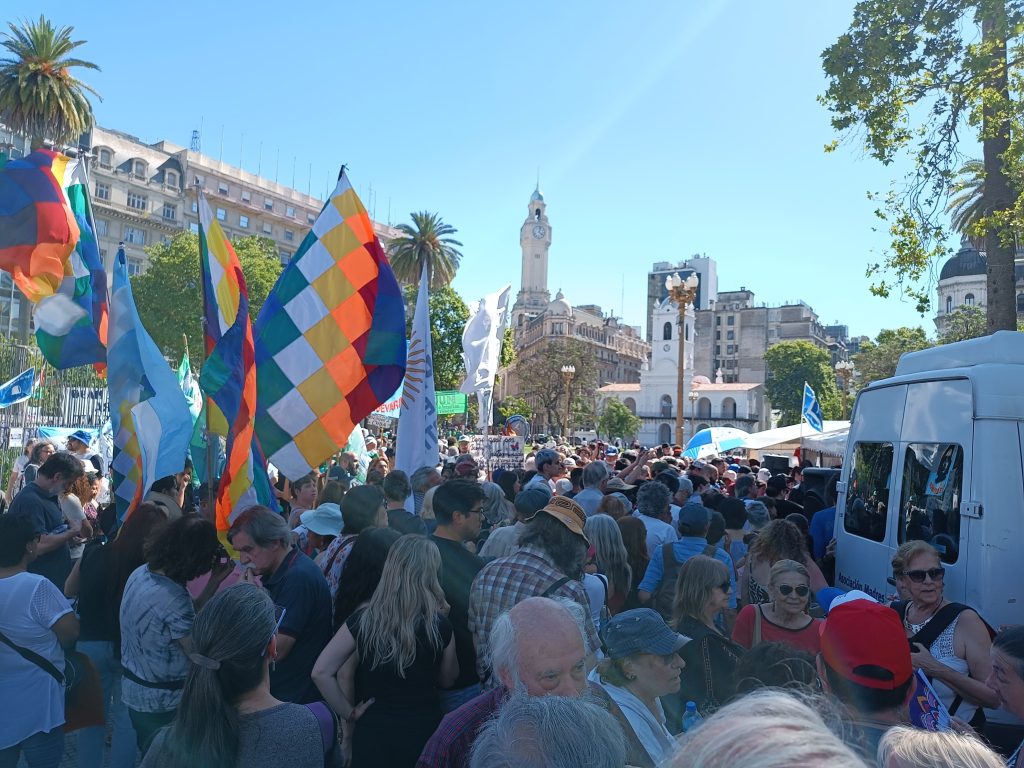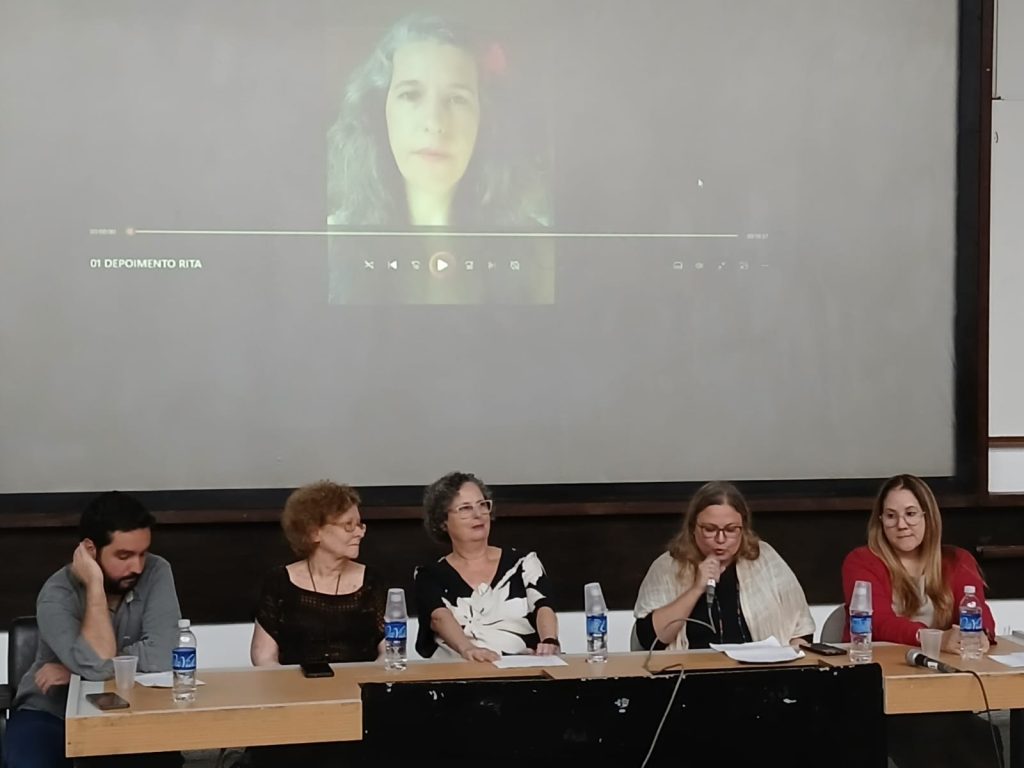
Bruno Falci (Journalist and Historian. Militant, in Brazil, of Sons and Grandchildren for Memory, Truth and Justice. In Argentina he is a militant of Madres de la Plaza de Mayo)
from Buenos Aires to O Portal O Cafezinho
During the week commemorating the 96th birthday of the great leader of the Plaza de Mayo Madres, Hebe Bonafini, who passed away two years ago, several mobilizations took place in multiple cities across the country. The Madres movement, which emerged in 1977, during the Argentine military dictatorship, with weekly marches in Plaza de Mayo to demand from the government where their children were kidnapped by the military dictatorship.
For 47 years, every Thursday, at 3:30 pm, the Madres have carried out the “tour” around the Pyramid of May, where the Casa Rosada, seat of the country’s government, is located. in search of their children, the 30 thousand who disappeared during the military dictatorship. That was when a systematic plan was organized that kidnapped, tortured, murdered and disappeared thousands of people between 1976 and 1983.

With the return to democracy, those responsible for the crimes began to be tried and convicted, but they never handed over the lists of victims. They didn’t even say what they did with their bodies. The march is open to all those who want to follow the demand. Through these marches, they became a moral reference in combating crimes committed by the military dictatorship and in defense of democracy and human rights. The Mothers, transforming their pain into struggle, organized themselves to collectively demand, make visible and denounce the disappearance of their children under State terrorism.

In Brazil, the anniversary of the founding of the Coletivo Filhos e Netos por Memória, Verdade e Justiça was celebrated, held at the State University of Rio de Janeiro (UERJ), on December 5th, Thursday. Founded in Rio de Janeiro on December 5, 2014, today it is an independent and non-partisan national Human Rights collective. Formed by family members of the dead, missing, tortured and politically persecuted, it has always been dedicated to defending Human Rights and combating State violence over the last 10 years.
The commemorative act becomes even more necessary in the current Brazilian scenario when the Federal Police concluded that former president Jair Bolsonaro acted in the plan for a coup d’état and was aware of a plan to assassinate President Lula, vice Geraldo Alckmin and the Minister of the Federal Supreme Court Alexandre de Moraes. The PF report indicted 37 people, including Bolsonaro, for the crimes of criminal organization, attempted violent abolition of the Democratic Rule of Law and attempted coup d’état. Along the way, military coup plotters discussed the installation of a prisoner of war camp, and the name Auschwitz was suggested, the name of the deadliest and most famous Nazi concentration camp, where a million people were murdered.

Popular resistance and police violence, led by the illegal repressive protocol of Javier Milei’s far-right government, characterized Argentina’s political scenario in 2024. There were large mobilizations against the government’s neoliberal policies. There were two general strikes and other demonstrations bringing together millions of people, who occupied the streets of the country’s main cities. In reaction to the far-right government, which every day resembles the military dictatorships it so admires, launched a protocol that criminalizes protesters and prohibits them from closing streets and protesting, leading Argentina to relive the horrors of the past. Violent police repression, arrests and persecution of opponents is the new scenario in which social movements and all those who oppose the regime that Milei seeks to impose in Argentina find themselves.
Milei generated great popular dissatisfaction with more than half of the country below the poverty line, growth in unemployment largely caused by the downsizing of the public sector, the increase in the cost of living and the cut in subsidies. The governor promised, at the beginning of his term, to solve the problem of inflation, but on the contrary, he drastically reduced consumption, through his economic austerity policy, leading the country into recession. The political scenario remains uncertain, both the government and the organized people continue to face each other as the economy heads towards collapse and the people become more hungry every day, the government’s dissatisfaction grows every day, along with the repression of its opponents . The country, if it continues to follow this path, could be heading towards a social explosion.
see an interview from Semanário Latino-americano for Cafezinho and delve deeper into the debate
https://twitter.com/ocafezinho/status/1865477633468960991
Source: https://www.ocafezinho.com/2024/12/09/na-argentina-e-no-brasil-atos-de-memoria-contra-ditaduras-militares/

